The Gilded Age was a time in American history that stretched from 1877 to the early 1900s, give or take a few years. It was a time of economic growth, technological advancements, and industrialization. Much of that advancement came from a group of businessmen, entrepreneurs, and industrialists known as Titans of Industry or “Robber Barons.”
The Robber Barons were the men who led the charge during the Gilded Age and who benefited the most from it. While they drove the United States forward, many of their practices were regarded as ruthless, brutal, and unethical. As a result, many of them became extremely rich and powerful, but often at the expense of others.
If you’re curious and want to know who the most famous robber barons were and what they did, you’ve come to the right place. This article will also examine why these men were referred to as robber barons and whether they deserved such a name.
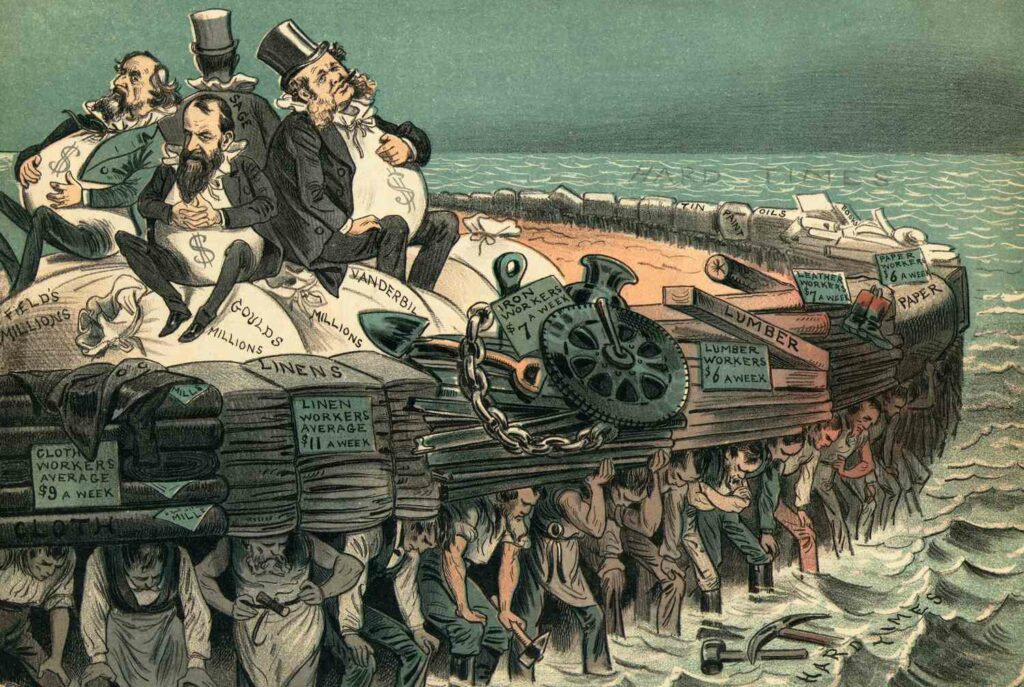
What is a Robber Baron?
Robber baron is a term used to refer to several leading figures during the Gilded Age. These men were involved in various industries, including finance, steel, oil, the railroad industry, and many more.
These men were called robber barons, not as a term of affection, but because many people considered them thieves and scoundrels. In addition, many in the general public felt that the business practices used by robber barons made them extremely wealthy but at the expense of their employees and the general public.
Additionally, many felt “robber barons” monopolized certain parts of industry. This way, they could withhold items for a time, drive up the price, then sell those items at a steep upcharge.
Who Were the Robber Barons?
There are more than two dozen men who were considered to be robber barons during the Gilded Age. However, five men became far more famous, powerful, and wealthy than the rest, thus known as the five leading robber barons.
Andrew Carnegie
Although some view Andrew Carnegie as a greedy robber baron, he’s viewed by many others as an inspiration. Carnegie, originally from Scotland, came to the United States with his family as a young boy in 1848. Unlike several other robber barons, Andrew didn’t come from wealth.
Instead, he was the son of poor Scottish immigrants and was forced to get his first job at a cotton factory at 12. It was common for Carnegie to work between 10 and 12 hours a day for less than minimum wage during his time at the Pittsburgh factory.
From there, Carnegie worked at a telegraph office for a railroad company, where he quickly worked his way up the corporate ladder.
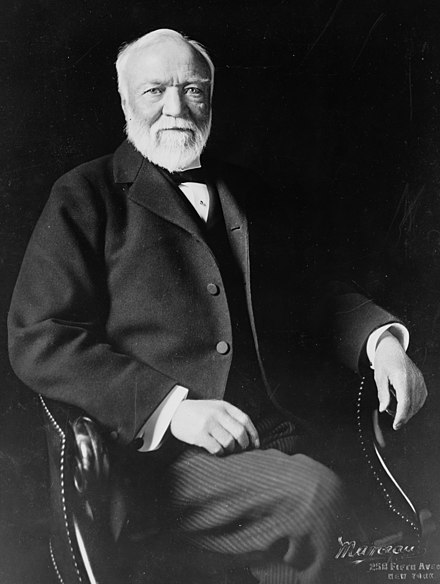
Within a decade of starting as a telegraph operator, Carnegie was the superintendent of his railroad office. He invested his hard-earned money in the oil, railroad, and steel industries, and it was steel where he eventually made his fortune.
Long story short, Carnegie would go on to found the Carnegie Steel Company. However, what made him so wealthy compared to other business owners was that Carnegie utilized vertical integration.
Carnegie owned every part of his business, including the mines that produced the steel, the railroads that transported it, and the factories that utilized it.
In this way, Carnegie monopolized the steel industry and became one of the wealthiest men in the world. He would go on to sell the Carnegie Steel Company to another robber baron, JP Morgan, for a whopping $480 million, making him the wealthiest man in the world at the time.
John D. Rockefeller
The second famous robber baron we’ll look at is John D. Rockefeller. Arguably the most famous robber barons, Rockefeller, was to the oil industry as Carnegie was to the steel industry. Following the Civil War, Rockefeller quickly realized that oil was the future of the United States and went on to found the Standard Oil Company.
Like Carnegie, Rockefeller didn’t come from a wealthy family. Instead, he was born into a lower to middle-class family, and his first job was as a lowly clerk. However, Rockefeller was wise with his finances and gradually saved his money.
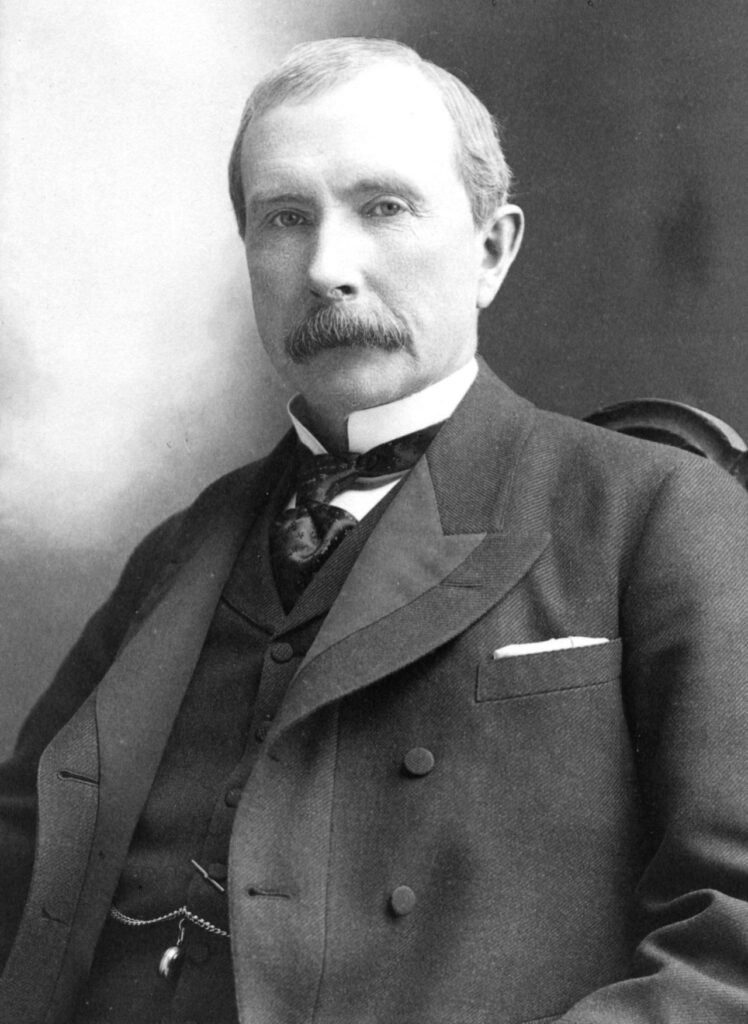
Eventually, he had enough money to buy his first oil company. Then, using income from that investment, and another business he owned, he continued to buy oil company after oil company and pipeline after pipeline until he controlled roughly 90% of all oil production in the US. In this way, Rockefeller monopolized the oil industry, resulting in expensive oil and ruthless working conditions.
This also led to Rockefeller becoming one of the wealthiest men in history and America’s first billionaire. To put into perspective how rich John D. Rockefeller was, his adjusted income today would be over $400 billion – close to the wealth of Elon Musk, Jeff Bezos, and Bill Gates combined!
Cornelius Vanderbilt
Born in 1794, Cornelius Vanderbilt was the oldest member of the robber baron gang. Nicknamed “The Commodore” because his first business was a fleet of ferries that carried people back and forth between Staten Island and Manhattan, Vanderbilt built his fortune in the railroad industry. He was able to get in on the ground floor and be part of the very first railroads in the country.
In addition to capitalizing on the railroad industry, Vanderbilt expanded his ferry operation into a full-blown shipping operation. His ships transported goods and customers all over the country and to parts of Central and South America.
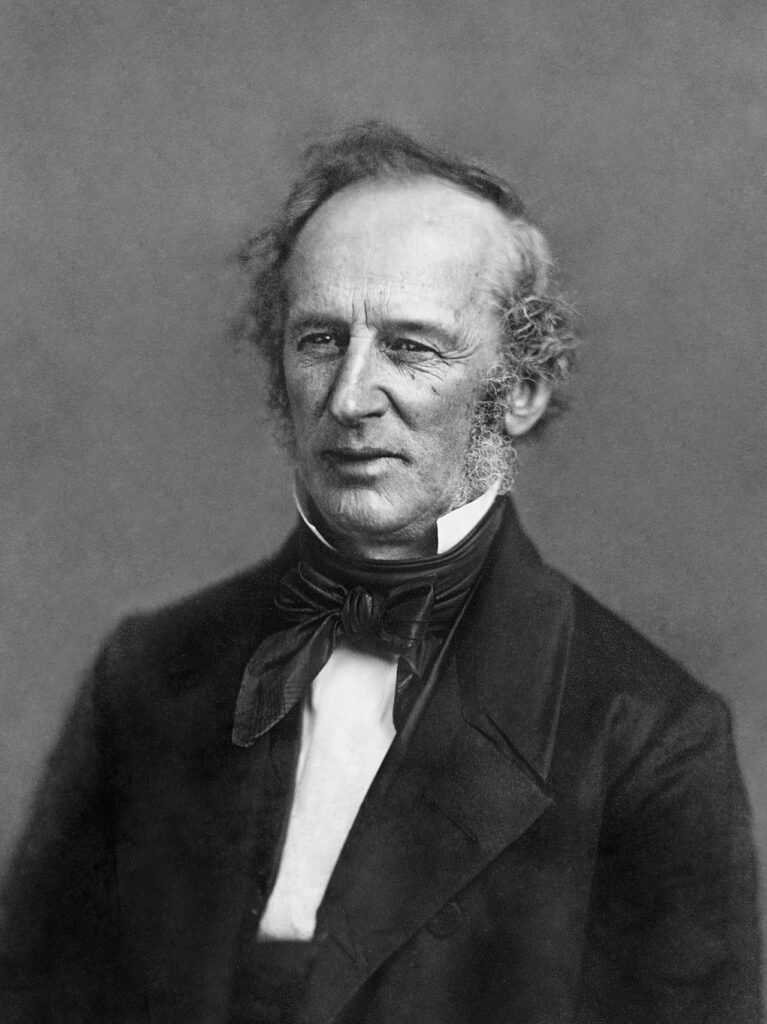
Vanderbilt also capitalized during the Gold Rush, when Americans scrambled to head west. He founded a trust that these individuals used, which made him a small fortune. This trust, combined with the railroad and shipping industries, is how Vanderbilt accumulated over $100 million by the mid-1800s.
Vanderbilt isn’t viewed as much as a true robber baron as Rockefeller or Carnegie. However, because he partially monopolized the shipping and railroad industries, he’s a robber baron nonetheless.
John Piermont “JP” Morgan
You’ve heard of John Morgan, thanks to his nickname, JP. He’s the same JP Morgan that the modern financial company is named after, and he helped found the company way back in 1871.
Unlike the other robber barons we’ve looked at, JP Morgan was born into wealth rather than poverty.
In the same way that other robber barons monopolized their respective industries, JP Morgan monopolized the financial industry. Morgan became so wealthy and successful that he p\bailed out numerous banks during the Panic of 1907.
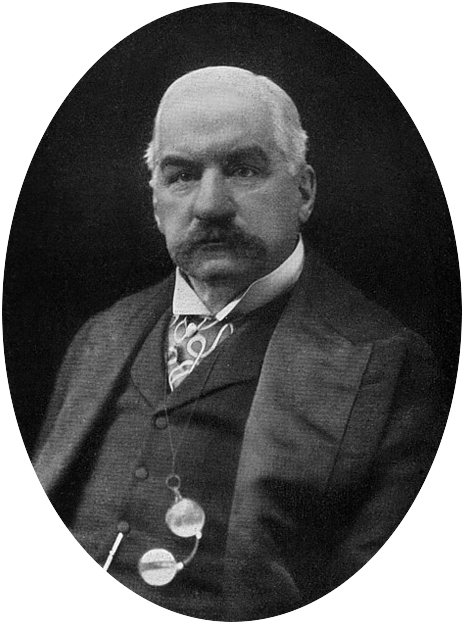
However, after Morgan did this in 1907, the government realized just how much power he wielded. As a result, they passed the Federal Reserve Act, which led to the creation of the Federal Reserve, America’s centralized banking system.
Morgan used his wealth to purchase the Carnegie Steel Company from Andrew Carnegie. He also helped finance major companies and corporations, including General Electric. Because of his success in the financial industry, JP Morgan is viewed as a symbol of capitalism and is held in high regard by financiers and bankers everywhere.
Henry Ford
The last robber baron we’ll look at is arguably the most famous, Henry Ford. Ford isn’t necessarily the most famous because of his power, but rather because he’s credited with producing the first motorized vehicle in the United States that was geared towards the general public, the Model T Ford. He’s also the founder of the Ford Motor Company.
Obviously, Ford is most famous for his contributions and success in the automobile industry. He was also one of the first American industrialists who utilized the assembly line during the production of his vehicles. Although we view the assembly line concept as common sense today, it wasn’t used until Ford made it famous.
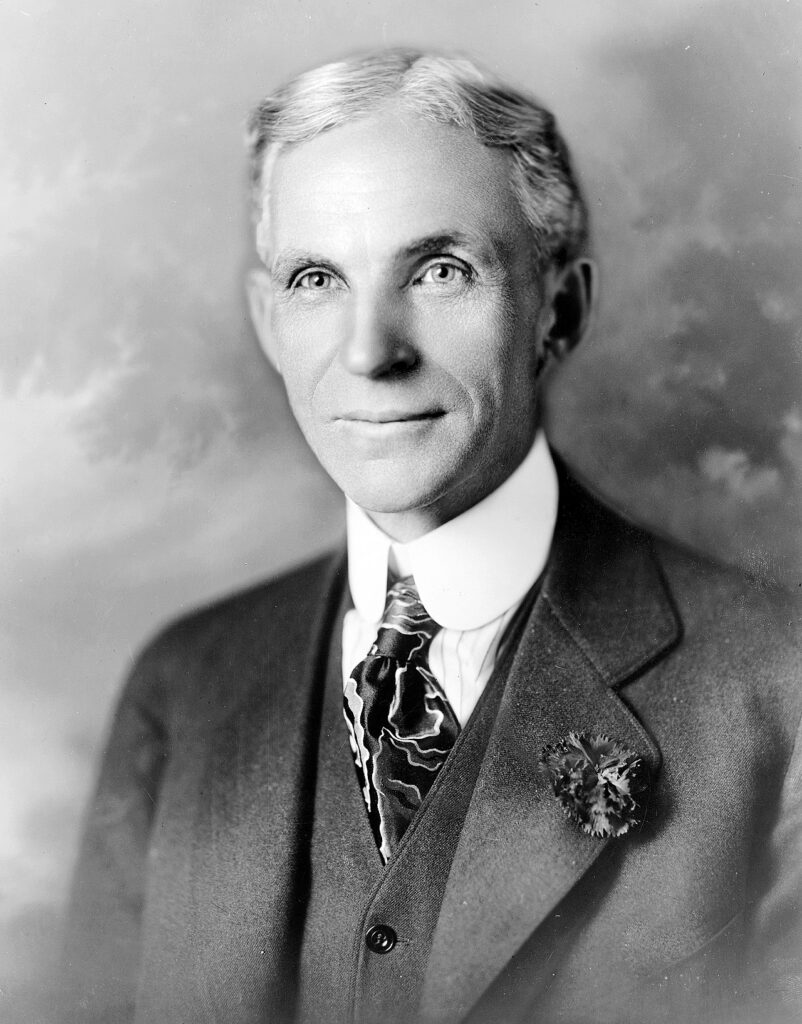
Of all the robber barons on this list, Henry Ford is by far the most undeserving of the title. He was known to treat his employees well and was generous with his money.
For example, rather than making his employees work 10 hours/day, six days/week for minimum wage, Ford started the concept of the 5-day, 40-hour workweek. He also paid his employees twice as much as other vehicle manufacturers at the time.
Because of how well he treated his employees and later charitable donations, Ford is looked at more favorably in history. However, he was also viewed as a robber baron because he also controlled and monopolized the first major vehicle company in the United States.

